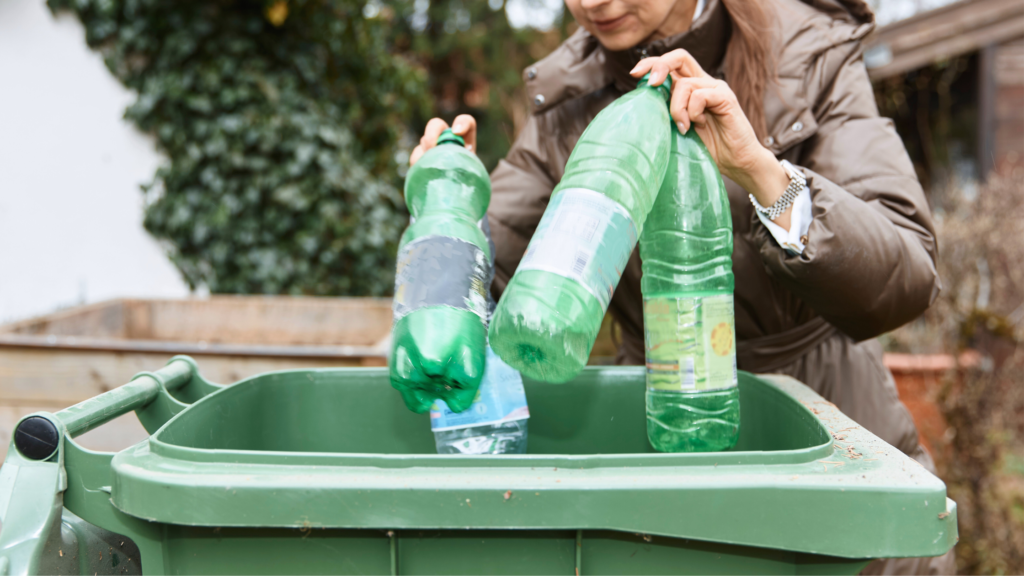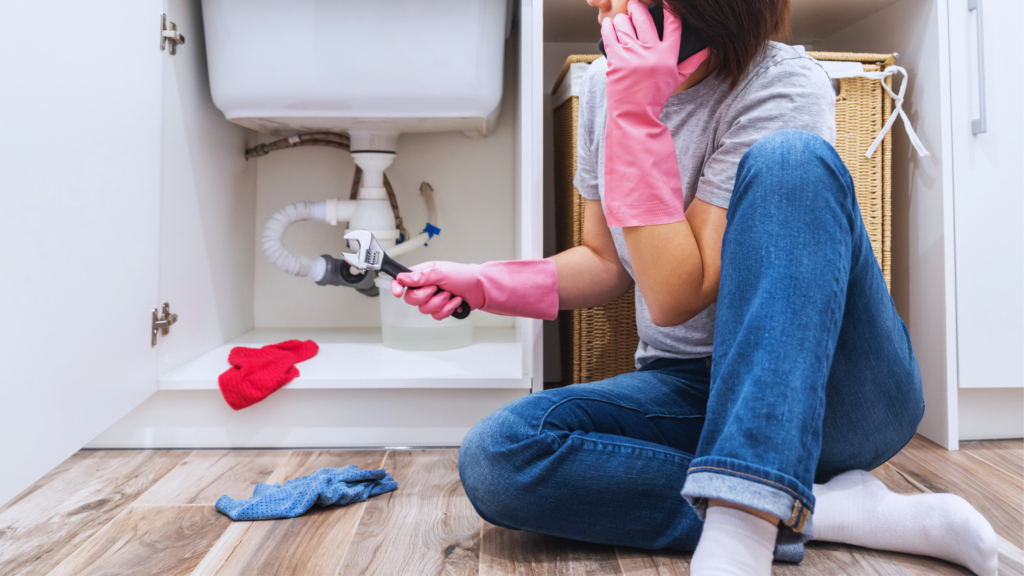Living sustainably doesn’t have to be expensive. In fact, adopting eco-friendly practices can often lead to saving money in the long run. By simply living more mindfully, there are countless ways to make sustainable choices without breaking the bank. Plus, these sustainable practices can also lead to a healthier lifestyle for you and your family by reducing exposure to harmful chemicals and promoting overall well-being. In this blog, we’ll explore practical tips for sustainable living that will benefit both your wallet and the planet.
1. Start with Small, Affordable Swaps:

You don’t need to overhaul your entire lifestyle overnight. Begin with small, manageable changes that have a big impact. Consider swapping single-use plastic items for reusable alternatives. For example, replace plastic bags with cloth totes or glassware, switch to reusable water bottles, and use beeswax wraps or unbleached parchment paper instead of plastic wrap. These small changes not only reduce waste but also save money over time by eliminating the need to repurchase disposable products. Moreover, reducing plastic use can decrease your exposure to harmful chemicals like BPA, promoting better health for you and your family.
Amazon Best Selling Product Recommendations:
- JoyJolt JoyFul 24pc(12 Airtight, Freezer Safe Food Storage Containers and 12 Lids), Pantry Kitchen Storage Containers
- IRON °FLASK Camping & Hiking Hydration Flask with 3 Lids – Stainless Steel, Double Walled & Vacuum Insulated Water Bottle
- If You Care Parchment Baking Paper, 70 sq ft
*Relevant article: Clean and Safe Home Swaps to Improve Your Health
2. Embrace Energy Efficiency:

Reducing energy consumption is one of the most effective ways to live sustainably and lower your utility bills. Simple actions like turning off lights when not in use, using energy-efficient LED bulbs, and unplugging electronics can make a significant difference. Additionally, consider investing in a programmable thermostat, which allows you to optimize heating and cooling for maximum efficiency. While some energy-efficient upgrades might require an initial investment, the long-term savings are substantial. Plus, reducing energy usage can also improve indoor air quality by decreasing the reliance on energy-intensive appliances that can emit pollutants.
Amazon Best Selling Product Recommendations:
3. Opt for Secondhand and Upcycled Items:

Buying secondhand or upcycled items is a cost-effective way to reduce waste and support sustainable living. Thrift stores, online marketplaces, and local swap events are great places to find gently used clothing, furniture, and household items at a fraction of the cost of new products. Upcycling, or creatively reusing old items, is another way to breathe new life into things you might otherwise discard, reducing the demand for new resources and saving money in the process.
4. Grow Your Own Food:

Gardening is an excellent way to live sustainably while saving money on groceries. Even if you have limited space, container gardening or vertical gardening can yield a significant amount of produce. Herbs, tomatoes, leafy greens, and peppers are all easy to grow and can be harvested throughout the growing season. Not only does growing your own food reduce your carbon footprint, but it also ensures that you’re eating fresh, organic produce without the added cost of store-bought options. Plus, having control over your food sources means you avoid pesticides and other chemicals, contributing to better health for your family.
Amazon Best Selling Product Recommendations:
*Relevant article: Sustainable Gardening Practices to Cultivate a Greener Garden
5. Reduce, Reuse, and Recycle:

While recycling is important, reducing and reusing are even more impactful. Before making a purchase, ask yourself if you really need the item. Consider borrowing, buying secondhand, renting, or repurposing what you already have instead of buying new. These practices not only cut down on waste but also help you avoid unnecessary expenses. Additionally, reducing clutter and unnecessary purchases can contribute to a more peaceful, stress-free home environment.
Amazon Best Selling Product Recommendations:
*Relevant article: The Allure of Minimalist Home Decor
6. Conserve Water:

Water conservation is both an environmental and financial win. Simple habits like fixing leaks, taking shorter showers, and installing low-flow fixtures can greatly reduce your water usage. Additionally, consider collecting rainwater to use for gardening or cleaning tasks. By conserving water, you can lower your utility bills while contributing to the preservation of this vital resource. Moreover, reducing water waste helps maintain clean water supplies, which is crucial for overall health and well-being.
7. Make Your Own Cleaning Products:

Commercial cleaning products are not only expensive but often contain harsh chemicals that can be harmful to both your health and the environment. Making your own cleaning products from natural ingredients like vinegar, baking soda, and essential oils is a budget-friendly and sustainable alternative. These DIY cleaners are just as effective as store-bought options and significantly cheaper. Plus, by using natural ingredients, you minimize your family’s exposure to toxic chemicals, creating a healthier home.
Amazon Best Selling Product Recommendations:
*Relevant article: 9 Clean and Safe Home Swaps to Improve Your Health
8. Support Local and Sustainable Businesses:

Whenever possible, support local farmers, artisans, and businesses that prioritize sustainability. Buying local reduces the carbon footprint associated with transportation and often means fresher, higher-quality products. While some sustainable products might seem more expensive upfront, they often last longer and are made with more care, leading to better value in the long run. Additionally, choosing locally produced goods often means fewer preservatives and additives, contributing to better health for your family.
– Relevant article: Support Local Farms For Better Health

Sustainable living doesn’t have to be a luxury. By making mindful, budget-friendly choices, you can contribute to a healthier lifestyle while also benefiting your personal finances and the well-being of your family. Remember, every small change adds up, and the journey toward sustainability is one that you can tailor to your lifestyle and budget. Start with these tips and watch how your choices can lead to a more sustainable, cost-effective, and healthier way of living.
Let’s continue making mindful choices that benefit both our wallets, our health, and the planet. Happy sustainable living! 🌱
Disclaimer: As an Amazon Associate, we earn from qualifying purchases. This helps support the blog at no extra cost to you!
Sources:
- EPA, Reduce, Reuse, Recycle: https://www.epa.gov/recycle
- Energy.gov, Energy Saver Guide: https://www.energy.gov/energysaver
- National Geographic, Tips to Save Water: https://www.nationalgeographic.com/environment/article/tips-save-water
- EWG, Guide to Healthy Cleaning: https://www.ewg.org/guides/cleaners



